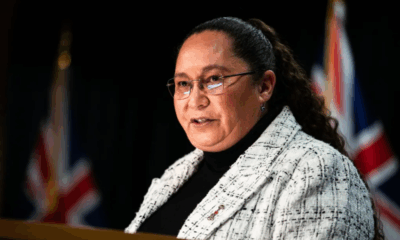Politics
Christchurch Exempted from Housing Intensification Mandate

The New Zealand Government has exempted Christchurch from a nationwide housing intensification mandate, a move celebrated by local officials. The announcement, made by Chris Bishop, the Minister for RMA Reform, on October 23, 2023, enables the city to limit high-density housing development to specific areas, including the city centre and parts of Riccarton and Hornby.
The decision allows Christchurch to avoid the broad application of intensification rules, which could have led to the construction of multiple three-storey homes in residential zones without the need for resource consent. Phil Mauger, the Mayor of Christchurch, expressed his satisfaction with the decision, stating he is “absolutely over the moon” that the city can maintain its unique character and environment.
Bishop’s announcement confirmed that intensification would be confined to selected areas, while approximately a quarter of the city’s residential zones will still be subject to higher density regulations. Mauger emphasized the importance of local control over planning rules, stating, “We know what’s best for our city, its unique character, environment and needs.”
In March 2023, the council notified Plan Change 14, which aimed to comply with housing demand set by the previous government. This plan could have allowed for significant residential development without local oversight. However, Christchurch officials argued that a one-size-fits-all approach to housing was not suitable for the city’s diverse landscape.
The new legislation permitted the council to withdraw from Plan Change 14, provided they could demonstrate a housing capacity of 65,640 homes plus an additional 20%. In presenting their case, the council outlined plans for at least 68,200 homes, thereby meeting the requirement specified by the Government.
Bishop remarked on Christchurch’s growth, noting that it is a “vibrant, fast-growing city” with increasing opportunities for residents. He highlighted the necessity of creating more homes in the right locations to accommodate the city’s expansion. “The evidence is clear that more housing capacity leads to more homes being built, which helps bring down rents and make housing more affordable,” he stated.
The council reported a 50% increase in total medium-density zoning under Plan Change 14, indicating that these decisions support public transportation and more efficient infrastructure management.
Local community representatives expressed mixed feelings about the exemption. Helen Broughton, a member of the Waipuna Halswell-Hornby-Riccarton community board, acknowledged the council’s efforts but raised concerns about the implications for areas like Riccarton, which may face significant changes. She expressed hope that any developments would occur gradually.
Another council member, Andrei Moore, described the decision as unsurprising and suggested that the council had spent excessive time and resources contesting the Government’s previous intensification plans. He noted inconsistencies in housing approvals across different city areas.
Looking ahead, the Government still needs to address the future of two heritage sites in Christchurch, Antonio Hall and Daresbury, as well as a special character area around Piko Crescent. Decisions regarding these sites are expected in the coming months, indicating continued discussion around the city’s urban planning and heritage preservation.
-

 Sports2 months ago
Sports2 months agoNetball New Zealand Stands Down Dame Noeline Taurua for Series
-

 Entertainment2 months ago
Entertainment2 months agoTributes Pour In for Lachlan Rofe, Reality Star, Dead at 47
-

 Entertainment1 month ago
Entertainment1 month agoNew ‘Maverick’ Chaser Joins Beat the Chasers Season Finale
-

 Sports2 weeks ago
Sports2 weeks agoEli Katoa Rushed to Hospital After Sideline Incident During Match
-

 Sports2 months ago
Sports2 months agoSilver Ferns Legend Laura Langman Criticizes Team’s Attitude
-

 Politics1 month ago
Politics1 month agoNetball NZ Calls for Respect Amid Dame Taurua’s Standoff
-

 Sports1 week ago
Sports1 week agoJamie Melham Triumphs Over Husband Ben in Melbourne Cup Victory
-

 Entertainment3 months ago
Entertainment3 months agoKhloe Kardashian Embraces Innovative Stem Cell Therapy in Mexico
-

 World3 months ago
World3 months agoPolice Arrest Multiple Individuals During Funeral for Zain Taikato-Fox
-

 Sports3 months ago
Sports3 months agoGaël Monfils Set to Defend ASB Classic Title in January 2026
-

 Entertainment2 months ago
Entertainment2 months agoTyson Fury’s Daughter Venezuela Gets Engaged at Birthday Bash
-

 Sports2 months ago
Sports2 months agoHeather McMahan Steps Down as Ryder Cup Host After Controversy





















